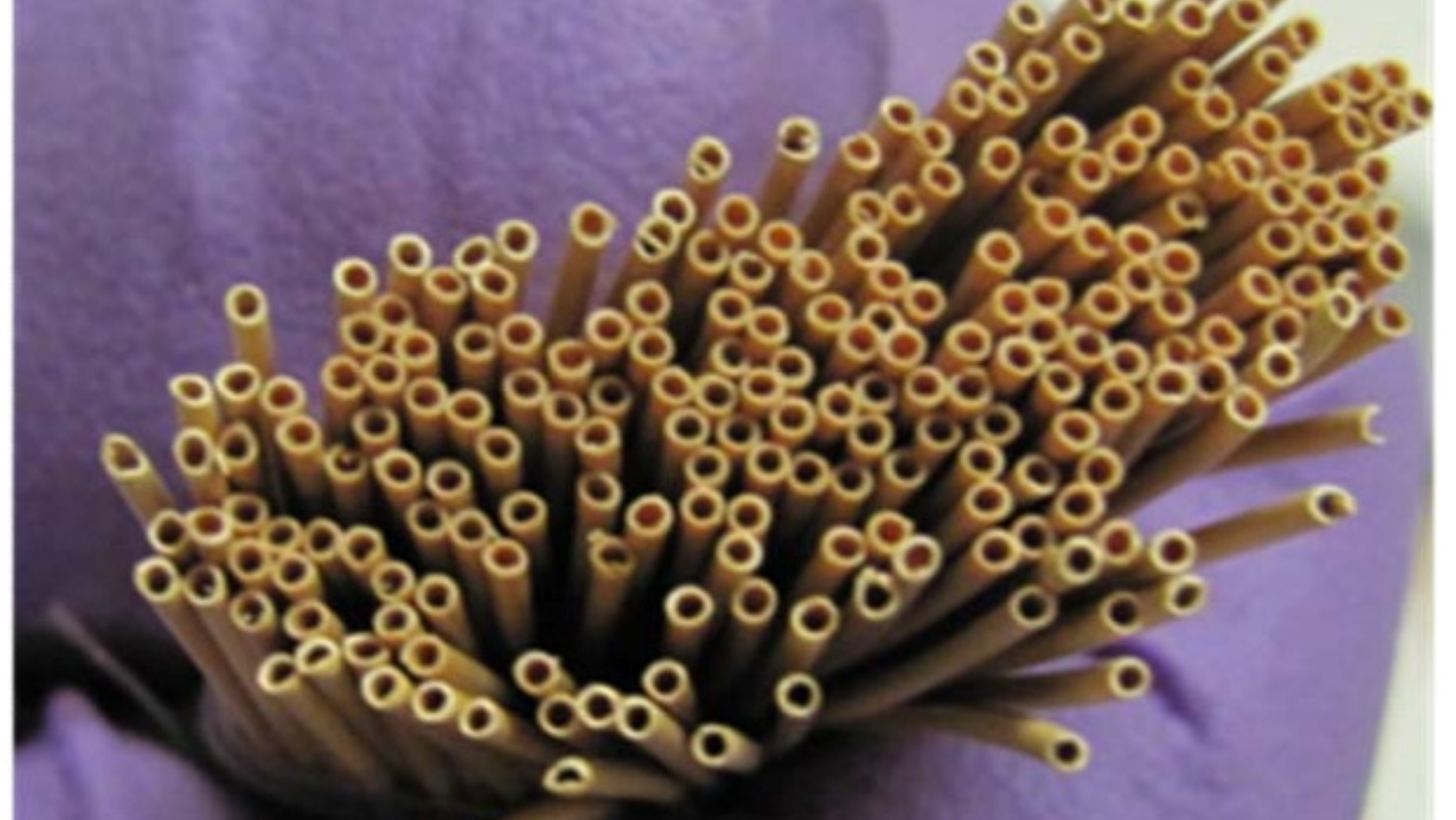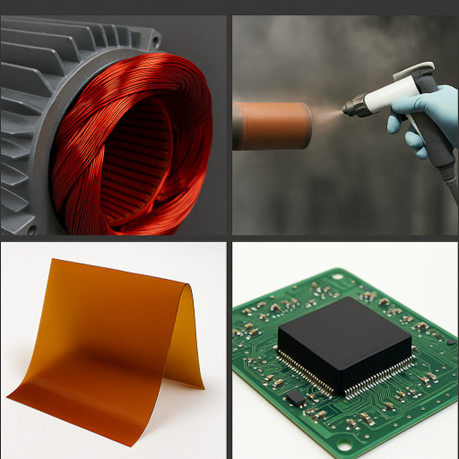
High-Temperature Electrical Coatings
Coatings are critical to system reliability in high-temperature and electrically demanding environments. Yet they are often the first materials to fail, breaking down under thermal load, electrical stress, or chemical exposure.
Conventional polymers like epoxies and polyimides eventually soften, crack, or lose insulation properties over time. Celazole® PBI offers a solution engineered for these extremes.
Thanks to its unique molecular structure and exceptional thermal properties, PBI coatings deliver stable protection where others degrade. Whether applied as a pure film or blended for processing flexibility, PBI maintains structural and electrical integrity under the harshest conditions. As PBI is inherently hygroscopic, note that the dielectric properties will change if moisture is absorbed; PBI coatings perform best in dry electrical applications.
Significant advantages include:
- Exceptional thermal stability, with a glass transition temperature of 427 °C and degradation resistance above 550 °C under vacuum
- Outstanding dielectric performance is retained even after prolonged exposure to high voltage and temperature
- Superior chemical resistance, including resistance to hydrolysis, hydrocarbons, alcohols, most solvents, oxidation, weak acids, and weak bases
- Robust mechanical durability, minimizing cracking and delamination during thermal cycling
- Flexible application options, including spray, dip, and film-cast coatings, with standalone or resin-blended formulations
Acrylates, Epoxies, and Polyvinyl Butyral
 Researchers have developed a series of hybrid systems to expand PBI’s process window and tailor its coating behavior. These include chemically and physically blended systems combining PBI with acrylates, epoxies, and polyvinyl butyral (PVB). Each offers a distinct benefit.
Researchers have developed a series of hybrid systems to expand PBI’s process window and tailor its coating behavior. These include chemically and physically blended systems combining PBI with acrylates, epoxies, and polyvinyl butyral (PVB). Each offers a distinct benefit.
PBI-acrylate systems formed UV-curable coatings with exceptional dielectric properties and mechanical flexibility in one patent example. The PBI component enhanced heat resistance, while the acrylate phase enabled rapid cure and surface adhesion. Such coatings are particularly useful for circuit boards and insulating films requiring thermal and solvent resistance.
PBI-PVB mixtures, meanwhile, have been used in protective films for glass and flexible electronic assemblies. These blends capitalize on PBI’s barrier properties and PVB’s film-forming ability to create robust insulating layers with excellent clarity and strength.
In epoxy systems, Celazole PBI acts as a reinforcing phase. Applied via spray or spin-coating, PBI-epoxy composites yield high-temperature varnishes with long-term stability on stator windings and laminated electrical components. These coatings maintain adhesion and dielectric strength even after undergoing thermal shock or extended bake cycles exceeding 200 °C.
Coatings That Insulate and Protect
PBI coatings’ applications span aerospace-grade adhesives to rotating electrical machines. In one test case, PBI-based varnish was used to coat magnet wire in high-speed electric motors. The coating reduced partial discharge and extended insulation lifespan under voltages exceeding 600 V and during continuous operation at near 220 °C. Standard polyester-imide coatings failed under these conditions due to dielectric breakdown and thermal oxidation.
Rotating machines also benefit from PBI coatings as a way to suppress electrical arcing and surface corona degradation. The high dielectric strength of PBI (at 580 V/mil) ensures insulation integrity across wide frequency and voltage ranges. Combined with its dimensional stability and low moisture uptake, these coatings help maintain winding performance in electric vehicles, industrial drives, and aviation systems.
Film-Casting and Application Flexibility
Celazole® PBI offers a high degree of processing versatility, making it adaptable to a wide range of coating and film applications. As a solution-processable polymer, it can be deposited using conventional methods and cured into durable, high-performance layers tailored to the demands of harsh environments.
Depending on the application, engineers and formulators can take advantage of several proven techniques:
- Spray and dip coating from PBI solutions in DMAc, producing uniform, conformal layers on complex geometries
- Thermal curing or UV crosslinking, depending on formulation, to enhance film integrity and adhesion
- Film-casting to create free-standing PBI films or multilayer composites for use in laminates, flexible circuits, or chemical barrier systems
- Laminated integration into high-temperature insulations and protective layers for electronics, aerospace, or industrial equipment
Durable Adhesive Films and Functional Layers
Several patented technologies highlight PBI’s use in adhesive systems. One formulation combined Celazole® PBI with polyfunctional epoxy resins to produce high-temperature metal and composite substrates adhesives. These films resisted delamination and mechanical creep at continuous use temperatures above 200 °C, showing strong bond integrity even after thermal cycling and chemical exposure.
PBI is also used as a tie-layer or dielectric barrier in hybrid applications. It bridges the mismatch in coefficient of thermal expansion (CTE) between substrates, reduces interfacial stresses, and forms an electrically isolating shield. These features are especially beneficial in multi-material assemblies found in power electronics and aerospace hardware.
A Proven Solution for Demanding Designs
PBI Performance offers polybenzimidazole (PBI) in solution form as a versatile platform for high-temperature coatings. The solution can be applied directly to produce durable, heat-resistant coatings, or it can serve as a formulation base for customers developing new coating systems tailored to their own performance needs. With exceptional thermal stability, chemical resistance, and mechanical integrity, PBI solution provides the foundation for coatings designed to protect surfaces and components in demanding environments.
From magnet wire insulation to circuit protection and structural adhesives, PBI enables engineers to design for the extremes, not around them.
Contact PBI Performance Products to discuss formulations, request technical data, or schedule a consultation with our application engineering team. Let us help you build coatings that go beyond the limits of conventional materials.





